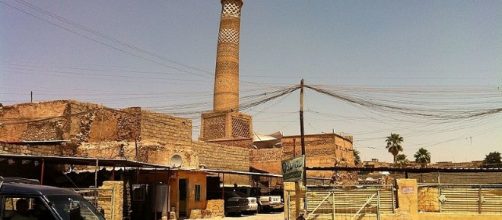By all accounts, the liberation of Mosul, the second largest city in Iraq, is all but complete. A coalition of Iraq Army troops, tribal militias, and Kurdish fighters, backed by American special forces and air power, has been fighting house to house against ISIS terrorists for months. Now, the most significant victory in the war on terror in years is at hand.
ISIS took Mosul in 2014 and began a reign of terror
After the withdraw of American troops under President Barack Obama, the terrorist army known as ISIS arose and seized much of Northern Iraq, including Mosul, along with territory in nearby Syria, and declared a caliphate.
The rule of ISIS was savage, with women and religious minorities especially bearing the brunt of oppression. A once vibrant Christian community that had dated back to the 1st Century AD had been eliminated as most fled from ISIS controlled territory or were murdered outright.
Campaign to take back Mosul brutal and bloody
The coalition, backed by American air power and special operations forces, had started the campaign to retake Mosul in October 2016. The fighting was brutal, with ISIS employing booby traps, suicide bombings, and the use of civilians as human shields. The offensive was conducted methodically, house to house, to clean out ISIS fighters. At one point, the terrorist army blew up the ancient Great Mosque of al-Nuri, dating back to the 12th Century and where ISIS leader Abu Bakr al-Baghdadi had first declared the Islamic State caliphate.
As of this writing, a few pockets near the Tigris River remain to be mopped up, but Iraqi Prime Minister Haider al-Abadi has already arrived in the city to declare victory.
What happens next?
The destruction of the Islamic State in northern Iraq is not the end of ISIS by any means. The IS remains in Syria, though a coalition of Syrians and Kurds backed by American air power and special forces has invested the so-called Caliphate capital of Raqqa and has started to retake that city as well. Some ISIS fighters likely escaped death in Mosul and will need to be hunted down and killed. The Islamic state has spread to countries outside it caliphate such as Yemen, Libya, and Afghanistan and remains a threat to countries in the West where it has conducted numerous terrorist attacks.
Iraq still has to deal with ethnic and sectarian divisions, being a country of Shia and Sunni Arab and Kurds, the latter of which demand lots of autonomy if not their own nation-state. Still, the liberation of Mosul is a significant victory and a blow to ISIS, which has lost credibility in defeat.


